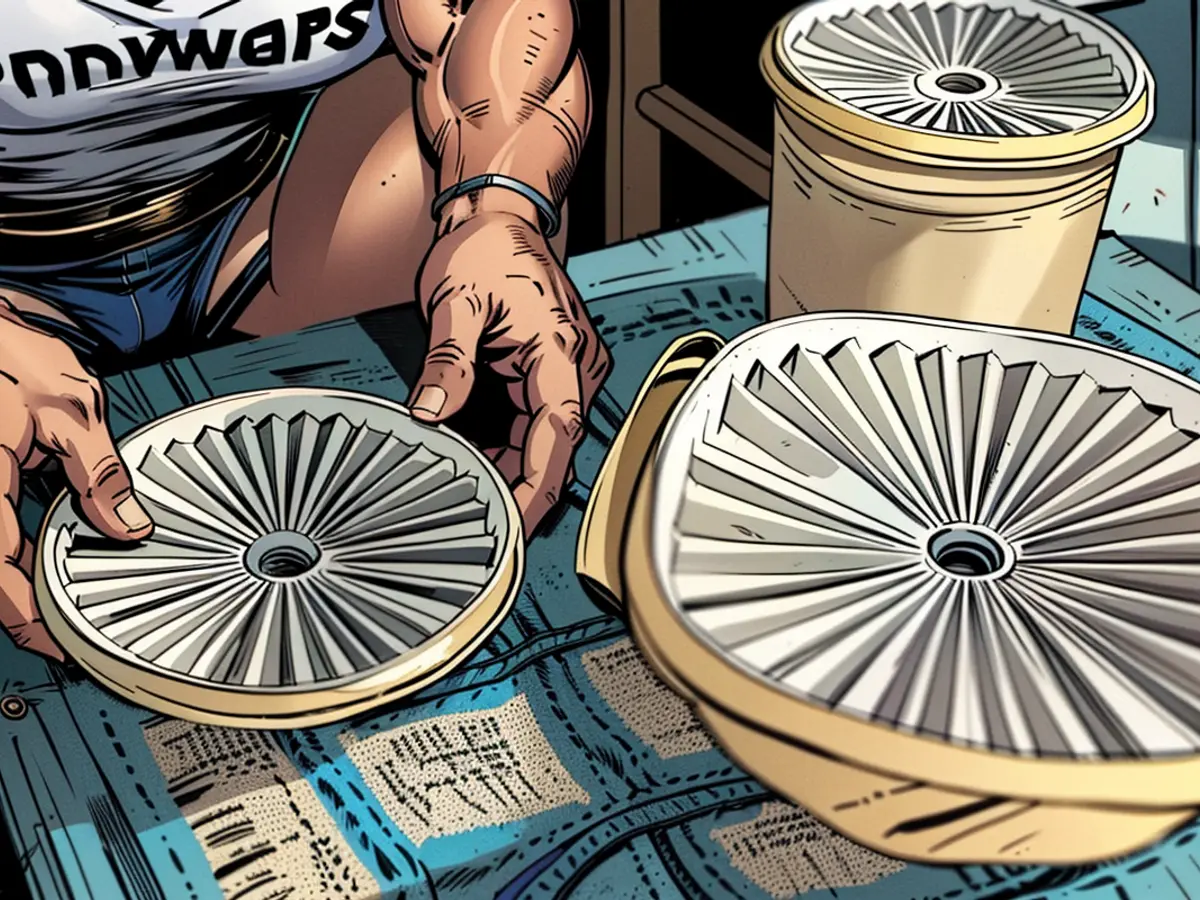Tupperware is faced with financial difficulties, experiencing bankruptcy-like situations.
Tupperware, renowned for its food storage containers and popular sales events, has declared bankruptcy in the United States. The filing was made in Delaware, and although the company's name will persist, significant changes in operations are imminent.
Tupperware is currently embroiled in a dispute with major creditors, citing unpaid debt payments and claims to large portions of the company as reasons. The management is seeking protection through Chapter 11 bankruptcy proceedings in the US. The outcome remains to be seen.
During this period, Tupperware intends to carry on with its business and is also actively seeking a potential buyer. Among its international subsidiaries, only Tupperware Products AG based in Switzerland has also filed for bankruptcy. The majority of creditors are based in the US, with one from Switzerland. It's unclear how this bankruptcy will impact German consumers, as requests to the German Tupperware subsidiary have gone unanswered.
Tupperware, a pioneer in plastic food containers, has wrestled with financial difficulties for some time. Negotiations with creditors, to whom Tupperware owes hundreds of millions of dollars, have been ongoing in recent months.
Debt Battle
According to management, a group of creditors purchased debt papers at a favorable price, paying between 3-6 cents per dollar of debt. This steep discount stems from uncertainty about Tupperware's future. For $15-$30 million, these creditors would have effectively secured a substantial portion of Tupperware's total debt of around $812 million.
The company anticipates creditors will attempt to disrupt the bankruptcy proceedings to gain control of Tupperware. Management aims to conclude the sale of the company within 30 days and has $7.4 million set aside for this purpose.
Last year, Tupperware expressed concerns about its ability to sustain its business due to its precarious financial situation. The company hasn't published any financial reports since 2022, when revenue had dropped to $1.3 billion - a 42% decrease compared to five years prior. Competitors, online retail, and food delivery services have put pressure on Tupperware, raising questions about its outdated business model.
According to court documents in Delaware, Tupperware has an estimated net worth between $500 million and $1 billion, but liabilities range from $1 billion to $10 billion. The company has between 50,000 and 100,000 creditors.
Tupperware Parties: Genesis of Success, Subsequent Slump
The name "Tupperware" is synonymous with food storage containers in Germany. Established in 1946, the company thrived through direct sales via Tupperware parties. Consultants would demonstrate the products at homes, with hosts receiving discounts and consultants earning commissions.
Tupperware claims that approximately 90% of its sales come from direct marketing. However, focusing heavily on this long-standing success formula led to missed opportunities in online trading, among other areas, according to restructuring chief Brian J. Fox, as stated in the bankruptcy papers.
Tupperware first moved into online sales, including on Amazon, in 2022, and also started appearing on the shelves of retailers like Target in the US. The management lamented that despite many consumers being aware of Tupperware products, they struggled to locate purchasing options.
"The party is over"
Tupperware has a workforce of 5,450 employees across 41 countries, along with an estimated 465,000 independent sales consultants. The number of consultants has fallen post-warning about economic challenges, according to Tupperware. Headlines like "the party is over" have caused unrest amongst consultants.
Tupperware's origins lie in plastic. Founder Earl Tupper started a plastics company in 1938, producing items like gas masks during World War II. After the war, plastics manufacturers had an excess capacity. Tupper experimented and eventually developed a robust and visually appealing plastic suitable for food storage containers. The second innovation was the airtight seal on the lid, which expels excess air from the container.
Initially, Tupper relied on traditional retail - even having a store on New York's Fifth Avenue. But then single mother from Detroit Brownie Wise discovered the products. She promoted Tupperware containers at events, complete with demonstrations. The strategy worked, and in 1951, Tupper abandoned traditional retail in favor of Wise, making her the marketing head.
Recently, Tupperware has been impacted by "anti-plastic sentiment" - concerns about potential leaching of chemical compounds from plastic into food.
In the bankruptcy filing made in Delaware, Tupperware listed its international subsidiary Tupperware Products AG based in Switzerland as one of its creditors. Despite financial difficulties and filing for bankruptcy in Delaware, Tupperware continues to operate and is actively seeking a potential buyer to avoid disruption by creditors.








